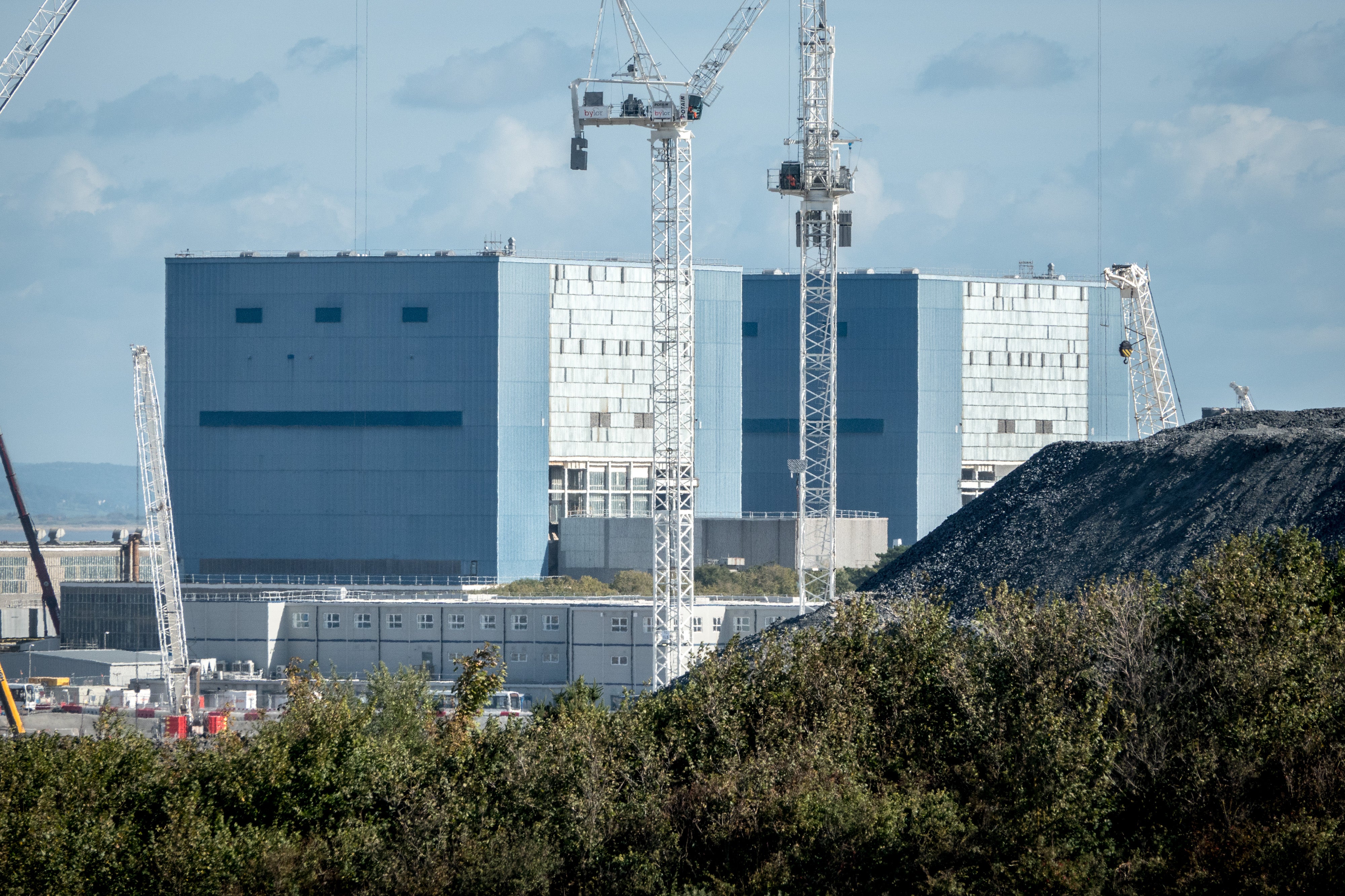Boris Johnson’s push for more nuclear power concerns me
The Treasury is said to be resisting the prime minister’s enthusiasm for nuclear power. It is right to be cautious, argues James Moore


Any sentence featuring both “Boris Johnson” and “gung-ho” is usually an indication that it’s time to run away. Fast.
When the same sentence includes “nuclear power” it becomes necessary to add “as far away as possible”. Perhaps New Zealand? The west coast of Canada, maybe? Vancouver is supposed to be a great city to live in.
Anyone know a good estate agent out there, because sometimes dreams come true. And that includes bad ones such as the British prime minister fixating upon nuclear power, appearing to see it as a bag full of magic beans.
Put ’em in the ground, head off the Chequers for the night, and in the morning a new set of nuclear power stations will have grown up at strategic points around Britain’s coastline. At a stroke, the energy crisis is solved. No more war-soiled Russian gas needed and net zero is here!
The trouble with this prime minister is he actually seems to think like that. Combine it with the fact that parts of the Conservative Party have long desired nuclear power and I’m instantly reminded of the phrase “Houston, we have a problem”.
Perhaps only Rishi Sunak can save the day, which explains why the Treasury is being painted as the villain of the piece with concerns, reportedly, about the burden such plans would place upon the public purse. The trouble is, the Sunak supernova isn’t looking anything like as bright as it did when people were placing bets on him being the next prime minister in time for the start of the next Conservative Party conference.
The chancellor and his team are, nonetheless, right to be wary. The Hinkley Point C experience explains why.
Dogged by financing difficulties, a fierce debate over its economic viability, and high levels of controversy over Chinese involvement in the project, it is a minor miracle that the thing is still moving ahead.
True, the economic case looks a lot better than it once did. The government initially wanted no part of financing the thing itself so had to guarantee a 20 year price for the electricity it produces to the consortium behind it, which looked very high until relatively recently.
But substantial cost over-runs remain a clear threat. Hinkley C is also years behind schedule and the government is currently scrambling to find new investors to ease out the Chinese state backed energy company China General Nuclear Power Group (CGN) from the project.
Johnson hasn’t let any of this cool his ardour – details have never been his strong point after all. He has lately been getting terribly excited about new tech and small modular reactors, about which he engaged in some tub thumping at the Tories’ spring conference when he wasn’t putting his foot in his mouth.
The latest development is a round table with industry leaders aimed at discussing how “government and industry can work together to remove barriers and progress future nuclear projects in the UK more quickly and cheaply”.
Stop me if you’ve heard that one before.
None of this can paper over the fact that while nuclear might look more attractive than it did, it still presents significant problems. The financing and the economic models are a part of a mix which, let’s not forget, also includes toxic waste material and the need to regulate very, very carefully.
It will also be many years before any of these things come on line. This is no quick fix, whatever Johnson might have people believe. The Treasury’s caution is completely understandable.
The problem with Johnson, and it has been said before, is that he jumps head first into things without really thinking them through while leaving others to pick up the pieces. Mostly taxpayers.
He’s done it with bridges, spending tens of millions on plans for a “garden” one in London that was never built. He pushed for what former adviser Dominic Cummings described as the “world’s most stupid tunnel” between Scotland and Northern Ireland. He wants to spend £250m on a royal boat as a hub for “attracting wealthy investors” to Britain. All this before we even get started on the ruinous cost of Brexit and his own disastrous handling of it.
Is this really a man to trust with nuclear power? Of all things?
Perhaps it’s time to root for Rishi. He’s justifiably taking heat for failing to do enough to reduce the impact of the energy crisis on ordinary householders but if he doesn’t win the battle over nuclear the costs to us all could be astronomical.






Join our commenting forum
Join thought-provoking conversations, follow other Independent readers and see their replies
Comments